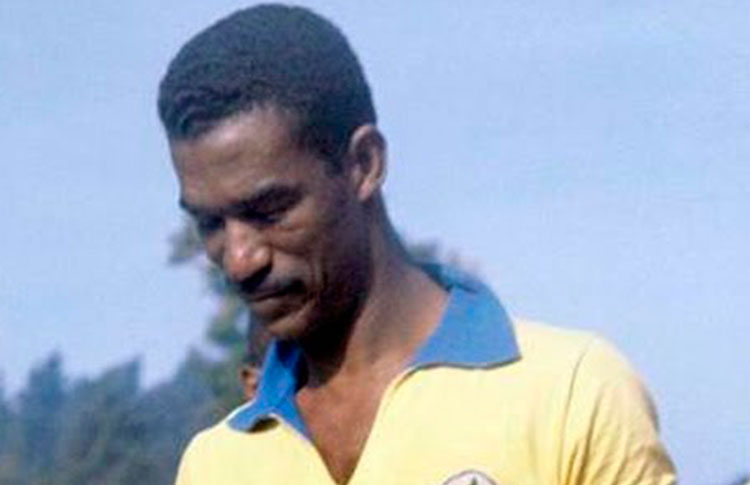Waldir Pereira, Didi, was an essential piece of the Brazilian world champions in 1958 and 1962. He played for Fluminense and Botafogo, where he returned after a brief stay at Real Madrid. He had a great long pass with pinpoint accuracy that was difficult to achieve with the balls of the time. But he is remembered mainly for his free kicks, known as folha seca. It consisted of striking the ball in such a way that it would look like it would go well high but then change and dip down sharply, something very hard for the goalkeepers to stop.
For the 1958 World Cup Brazil had to defeat Peru in a two-legged format. In Lima they drew 1-1; in the return match in Rio it looked as if the match would be headed to a goalless draw when, shortly before the final whistle, Didi scored with a free kick that became famous and that would lead to the journalistic baptism of the phrase folha seca, which is sometimes written Folha morta, because it alludes to dry or dead leaves falling from the tress. Over time, Didi explained that after a serious ankle injury he could not hit the ball as he did before because it hurt too much. He realized that if he kicked the ball with the inside of his foot, in the middle of the ball, turning his foot up slightly as he made contact, it would take that path. From that emerged this shot that made him famous.
Didi played for Madrid in the 1959-1960 season, but it didn't work out. He was a player of great class, but without the will to work as asked by Di Stefano. "I was the center forward, he was inside, and it turns out that I had to feed him the balls." The great Madrid of those years was based on constant ball movement and only Puskás, for his tremendous scoring ability, could play in small places. Didi was there only one year, in which he played eighteen of thirty league matches and none in the European Cup. Nor in the Cup because foreigners were not allowed.
But in Spain his folhas secas are remembered, the first of which he scored in the Trofeo Carranza upon arrival. And a little later in a league match against Espanyol in the Bernabeu stadium with Vicente as a goalkeeper, who then went to Madrid. Di Stefano asked him the secret of his kick, but he would not reveal it. Many have tried to imitate that kind of shot, but really it is only a rough version of what Didi did against Milan in the 1964 European Cup.
Alfredo Relaño/futbol.as.com
Photo: internet








